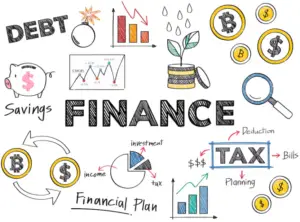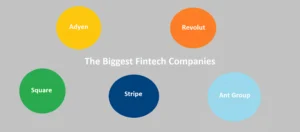The foundation of effective financial services in the modern digital era is client experience. Fintech businesses are quickly overtaking traditional banks and financial institutions. They are using innovative technology to redefine the consumer experience. Fintech, an acronym for “financial” plus “technology,” uses state-of-the-art resources to provide customers with interactions that are easy, tailored to their needs, and highly efficient. How is fintech changing the way customers interact with financial services? What are the main technologies that are causing this shift? We’ll take a look at all of that and more in this article.
The Evolution of Customer Experience in Financial Services
1. From Traditional to Digital
Long lines at bank locations and mountains of paperwork were the norm for customers’ face-to-face contacts with financial services in the past. Customers looking for quick and easy services frequently experienced irritation and inefficiency due to this old methodology.
With the rise of fintech, a new age of digital transformation has begun, making services available around the clock through various digital mediums such as mobile applications, websites, and tools. In an effort to improve the customer experience and streamline operations, fintech businesses are doing away with inefficient methods.
2. The Demand for Personalization
Nowadays, customers want experiences that are customized to their own requirements and tastes. Customers in the financial services industry are also looking for personalized solutions that take into account their own financial objectives and habits.
The financial technology industry is seeing a rise in the use of data analytics and AI to provide customers with more tailored financial services. Fintech solutions use user data to enhance the consumer experience by offering personalized suggestions, targeted offers, and personalized financial advice.
Key Technologies Driving Enhanced Customer Experience
1. Artificial Intelligence and Machine Learning
Fintech innovation is led by Artificial Intelligence (AI) and Machine Learning (ML), which are essential for improving the consumer experience. Fintech businesses can now analyze massive volumes of data with the help of these technologies, which in turn allows them to provide more efficient and personalized services.
Personalized Recommendations: Algorithms powered by artificial intelligence can study a user’s spending habits and credit card transactions to produce tailored suggestions. Apps like Acorns employ AI to help users plan their investments according to their unique spending habits and long-term objectives.
Chatbots and Virtual Assistants: The use of chatbots and virtual assistants driven by artificial intelligence is revolutionizing customer service. These tools provide real-time help and can answer questions instantly. Natural language processing allows platforms like Cleo and Kasisto to comprehend and react to client enquiries, providing an interactive and smooth support experience.
2. Mobile and Digital Banking
Customers now have easier and more efficient access to financial services thanks to mobile and digital banking, which are key to current fintech solutions. The widespread availability of smartphones and internet connection is being used by fintech businesses to their advantage in order to provide new banking experiences.
User-Friendly Interfaces: Easy Account Navigation, Transaction Processing, and Financial Management: Customers can effortlessly manage their accounts, funds, and investments using fintech applications that prioritize intuitive design and user-friendly interfaces. Apps with clean, uncluttered interfaces make using them a pleasure, as shown in Chime and Revolut.
Real-Time Notifications and Alerts: Mobile banking applications keep clients updated about their account activity, transactions, and financial objectives through real-time notifications and alerts. Because of the instantaneity, users are able to keep track of their funds and address any problems promptly.
3. Blockchain Technology
By offering a trustworthy and decentralized method of recording transactions, blockchain technology is causing a sea change in the banking sector. There are a number of financial technology uses for this decentralized ledger system that improve the client experience.
Enhanced Security: The use of cryptographic algorithms in blockchain technology makes transactions very safe and impossible to alter. Customers feel more at rest knowing that their financial information and transactions are safe due to this enhanced security.
Faster Transactions: Blockchain technology allows for more efficient and quicker transactions by cutting out middlemen and speeding up processing times. One use case is the potential for faster settlement times and reduced fees in cross-border transactions made possible by blockchain-based payment systems.
4. Digital Identity and Authentication
If fintech is serious about improving the consumer experience, it must prioritize digital identification and authentication solutions that provide safe and easy access to financial services.
Biometric Authentication: Facial recognition and fingerprint scanning are two examples of biometric technologies that provide a safe and easy way for consumers to verify their identification. To improve security and simplify login processes, fintech applications such as N26 and Revolut employ biometric authentication.
Single Sign-On (SSO): Customers are able to access various financial services with a single set of credentials thanks to Single Sign-On (SSO) technologies. Because of this, users won’t have to worry about remembering as many login credentials, which improves their overall experience.
The Benefits of Fintech-Enhanced Customer Experience
1. Convenience and Accessibility
Customers may handle their accounts whenever and wherever they choose using fintech solutions because of how convenient and accessible they are. Users may now access financial services, keep tabs on their accounts, and conduct transactions with the touch of a smartphone thanks to mobile applications, digital platforms, and online tools. For clients in unserved or far-flung locations, where conventional banking options are few, this accessibility is a godsend. With the help of fintech, those who might not have easy access to traditional banking services can now do so.
2. Personalization and Relevance
By catering to each client’s unique wants and requirements, personalized financial solutions increase happiness. In order to provide customers with tailored financial advise, suggestions, and offers, fintech firms rely on data-driven insights. Customers are better able to reach their financial objectives, make educated decisions, and actively participate in their financial services when they get this degree of customization. Customer connections that are built on trust and loyalty are the result of personalized experiences.
3. Efficiency and Speed
Through the use of fintech solutions, monetary transactions and interactions are made more efficient, saving users time and effort. An improved and faster service experience for customers is possible with the use of AI-driven insights, real-time notifications, and automated services.
Investing possibilities may be accessed quickly and easily through automated platforms and robo-advisors, and immediate transactions and transfers can be facilitated through digital payment systems. Customers are more satisfied and have more time saved because of this efficiency.
4. Transparency and Trust
By being upfront and honest about their fees, transactions, and account activity, fintech businesses want to build trust with their customers. Customers are more confident as a result of the increased security and transparency made possible by digital identification solutions and blockchain technology. Stronger relationships and higher customer retention rates are the results of fintech businesses’ transparent processes and secure technologies.
The Future of Fintech and Customer Experience
1. Continued Innovation and Integration
Innovation and the incorporation of new technology will characterize the future of financial technology. Financial services will become increasingly more efficient, individualized, and secure as a result of developments in artificial intelligence, blockchain, and digital identification.
2. Greater Focus on Financial Wellness
In the future, fintech solutions will cater to more than simply transactional demands; they will aim to improve people’s total financial wellbeing. To aid clients in reaching their long-term financial objectives, fintech services will increasingly incorporate wellness programs, budgeting tools, and personalized financial planning.
3. Expansion of Fintech Services
New and creative solutions will be added to the variety of services offered as fintech evolves further. Opportunities to improve the client experience and provide complete financial services will arise as a result of integration with other industries, such healthcare and real estate.
4. Emphasis on Ethical and Responsible Practices
As fintech organizations place a premium on consumer privacy, data security, and fair processes, ethical and responsible practices will inevitably take centre stage. To keep solid customer connections, it is crucial to build trust via ethical behavior and transparent methods.
Conclusion
Through the application of cutting-edge technology, fintech is reshaping the financial services industry and providing clients with more tailored, hassle-free, and effective solutions. Fintech is taking the financial services industry by storm, with innovations like digital identities, mobile banking, and AI-driven recommendations reshaping the industry.
Improving the customer experience will be a primary goal as fintech develops and grows. A more accessible, personalized, and fulfilling financial future is being paved by fintech businesses, who are embracing technology improvements and prioritizing client requirements.
If they want to keep up with the ever-changing fintech environment and take advantage of improved customer experiences, consumers and companies alike must stay informed about the newest innovations in the industry. Fintech is the engine that will propel financial services into the future.
FAQs on Fintech and Customer Experience in Finance
What is customer experience in finance?
When it comes to money, customer experience is all about how happy a customer is with the services they get, with an emphasis on how easy it is to use, how individualized the experience is, and how transparent everything is. It measures how successfully institutions use cutting-edge tech to satisfy client demands.
How does fintech help consumers?
Digital platforms, individualized solutions, and fast transactions are the ways in which fintech helps customers gain access to financial services. Customers are more satisfied as a result of the increased convenience, real-time information, and personalized financial advice it provides.
What is CX in finance?
In the financial sector, customer experience (CX) refers to the quality and efficiency of the interactions between clients and financial services. Utilizing technology, it facilitates the development of user experiences that are smooth, tailored, and fulfilling




